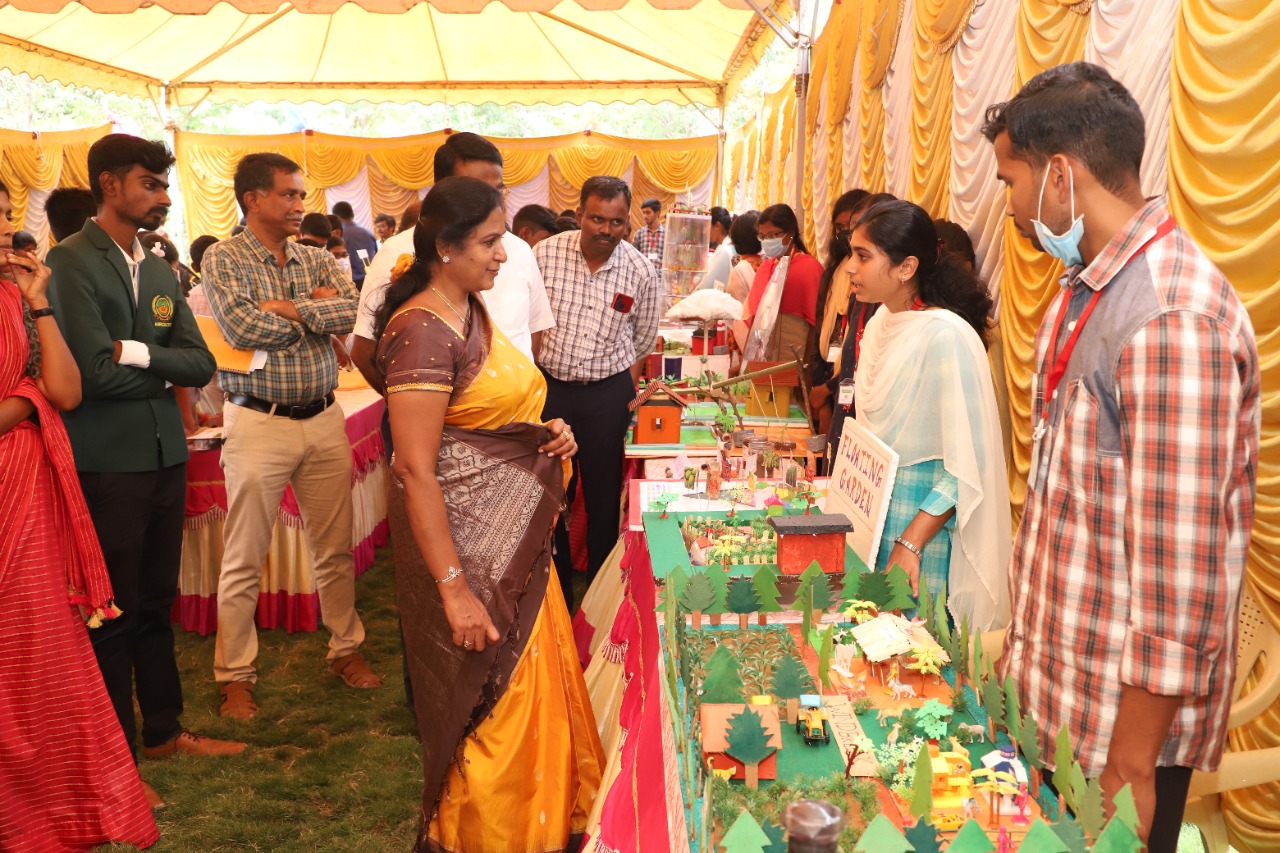The Tamil Nadu Agricultural University (TNAU) had its genesis from establishment of an Agricultural School at Saidapet, Madras, Tamil Nadu, as early as 1868 and it was later relocated at Coimbatore.
Get in touch
- info@tnau.ac.in
- 0422 6611200
- Monday to Friday: 9am to 5pm

M.Sc. (Ag.) in Bioinformatics
Prelude
Bioinformatics is a new interdisciplinary research combining computer science and statistical/mathematical modelling to analyze biological measurement data in all the science disciplines crossing boundaries. It is well-established in sectors such as agriculture, biotechnology, human health and the environment. With the development of next-generation sequencing technologies, overwhelming “BIG DATA” are getting deposited through many scientic projects like Earth Bio Genome Project, and bioinformatics knowledge is required for the progress of multi-omics technologies and approaches to, accelerate the genetic improvement of animals and plants, and promote food security and sustainable agriculture.
Why this programme?
- To understand integrated aspects of the biology of organisms, viewed as coherent complex organizations, at microscopic and macroscopic levels;
- To curate, annotate, and impose a structure on the available data, and to provide avenues for access and distribution;
- Interrelate sequence, three-dimensional structure, expression pattern, interaction, and function of individual proteins, nucleic acids, and protein–nucleic acid complexes;
- To integrate the data on the different aspects of the life of a cell or organism into a ‘systems’ description of its structure and dynamics;
- Deduce events in evolutionary history, to achieve greater deliberate scientific modification of biological systems pertaining to medicine, agriculture, and technology
Study Programme
The Masters programme in Bioinformatics has been designed following the UGC guidelines. The course imparts:
- Bioinformatics knowledge on handling databases and software for big data analytics.
- Develop globally competitive human capacity in Bioinformatics to develop novel materials
- Promote research on frontier areas of bioinformatics for developing high performance and nutrient rich crop varieties providing adequate nutrition to a growing population;
- Foster international alliances and collaborative initiatives to reach global excellence.
- Promoting entrepreneurial skills of bioinformatics students.
More details on the list of courses and research work experience to be gained is listed here.
Colleges offering
The master programme in M.Sc. (Ag.) in Bioinformatics is offered by the Department of Plant Molecular Biology and Bioinformatics, CPMB&B in Coimbatore campus.
Application and Admission
Interested in taking part in the programme of Bioinformatics? Find out more about the specific Admission requirements and the application procedures. If you doubt whether admission is possible, feel welcome to apply online. The Admission Committee will check your admissibility.
Future Career
Placement opportunities
– Bio-analytics
– Clinical pharmacologist
– Computational chemist
– Database design and maintenance manager
– Proteomics, Pharmacogenomics, Pharmacology
– Sequence analyst
– Informatics developer
– Bio-statistician
– Data Mining in charge
– Research Scientist/Associate at research laboratories,
– pharma companies, agricultural industries,
– bioinformatics industries
– IT and banking sectors
– ICAR- ARS Bioinformatics Scientist.
Master’s in Bioinformatics course
Master Courses
After admission the students undergo a set of courses that help them understand the basics of bioinformatics, mathematics and computer programming as per the Choice Based Credit System (CBCS) with a total credit load of 55 credits, of which 20 credits are exclusively earmarked for their Thesis Research.
Master’s thesis research
After completing the courses in the first year, the students start their thesis research. Each student is assigned to an experienced faculty, approved by the Dean of School of Post-Graduate Studies, who would guide the student on his/ her choice of research topic.
Research internship
The students are exposed to several scientific events like symposia and conferences. Many are encouraged to have internship training at other institutes for a couple of months, either in India or abroad.
Student Experiences

Being a TNAU undergraduate alumni and also a PG undergoing student, TNAU provides an immense resource for every student. B.Tech. Bioinformatics course will provide a vast knowledge of bioinformatics concepts and principles that will help the students to get more insight into this course. This will satisfy the programming language skills of the students from the initial stage of the course. Post-Graduate in Bioinformatics (M.Sc. (Ag) in Bioinformatics) will give the students to get exposures on various fields theoretically as well as practically. They will provide good laboratory facilities and experienced faculty for molding the students with better care and knowledge. Online workshops and training will give the students a better learning environment. M.Sc. students will be excelling in all fields to revolutionize Bioinformatics.
K. Pavithra, 2021 Batch

Myself SELVA BABU S, I completed my M.Sc. (Ag) Bioinformatics at Tamil Nadu Agricultural University, Coimbatore. Here I mention the experience I gained on my M.Sc. Bioinformatics course, the course we underwent in postgraduate is well formatted and all are updated with the recent trend in Bioinformatics and other technologies related to Life science. Not only theoretical knowledge I also gained well practical experience during course work, but in such a way course was also framed with equal importance to both theory and practical. The courses which were necessary for the day-to-day bioinformatics application are included in the syllabus, all the courses framed were taught in an easy manner along with real work bioinformatics problems. Our M.Sc. course not only comprises bioinformatics and related course but also included skill development course like Technical writing and communication skills. Practically I applied all the techniques I learned theoretically during my research work. Well, dedicated and highly skilled Professors and Assistant professors of the department helped and funded the research work and lend a hand to sort out the issues that arise in the research work. The Chairman of my research work created an independent environment to carry out the research work and supported in both academics and personal life. In other colleges where they offer M.Sc. Bioinformatics will give only 6 months research work which will not be well enough to learn most of the techniques in bioinformatics but in our college, the syllabus of M.Sc. is framed with one-year research work which is well enough to carry out productive research work which can be published in high impact factor journals. The skills I learned from my postgraduate course helped me a lot to get the jobs in several institutes. After completing degree also our course work and research work made me to think how effective those were in my career. In every institute there will be positive and negatives, but in duration of my work in my department the positives were more which pummels the negatives, so we can complete the degree joyfully.
Cheers!
SELVA BABU SELVAMANI, M.Sc. (Ag)
Bioinformatics.
Project Fellow, IBAB

